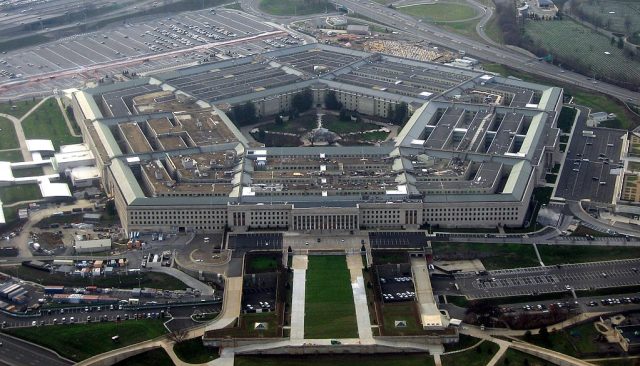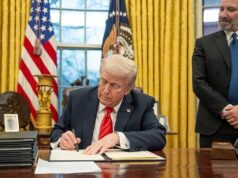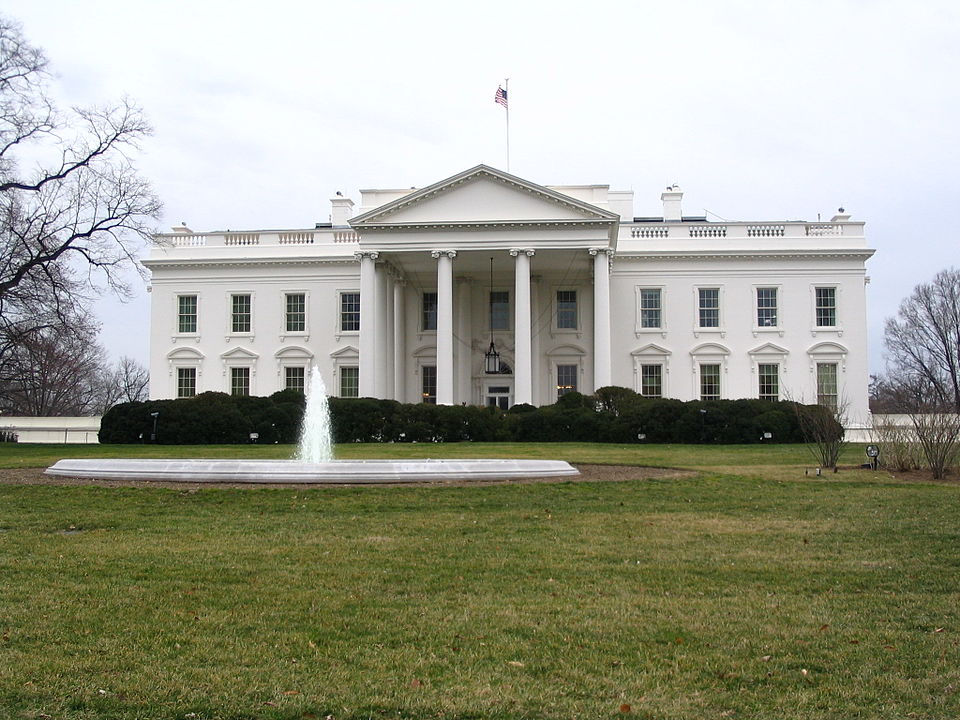Trump National Security Adviser Mike Waltz accidentally added Jeffrey Goldberg, editor-in-chief of The Atlantic, to a group chat in which national security leaders discussed a military strike.
Goldberg was apparently included in a Trump administration group chat on Signal in which top officials debated and then discussed details of attacks against Houthi rebels in Yemen.
Defense Secretary Pete Hegseth reportedly sent the group details including weapons used, targets, and timing — two hours ahead of the attacks, which began on March 15.
Others in the group were Vice President Vance, Secretary of State Marco Rubio, Director of National Intelligence Tulsi Gabbard, and CIA Director John Ratcliffe.
From Goldberg’s bombshell story:
On Tuesday, March 11, I received a connection request on Signal from a user identified as Michael Waltz. Signal is an open-source encrypted messaging service popular with journalists and others who seek more privacy than other text-messaging services are capable of delivering. I assumed that the Michael Waltz in question was President Donald Trump’s national security adviser. I did not assume, however, that the request was from the actual Michael Waltz. I have met him in the past, and though I didn’t find it particularly strange that he might be reaching out to me, I did think it somewhat unusual, given the Trump administration’s contentious relationship with journalists—and Trump’s periodic fixation on me specifically. It immediately crossed my mind that someone could be masquerading as Waltz in order to somehow entrap me. It is not at all uncommon these days for nefarious actors to try to induce journalists to share information that could be used against them.
I accepted the connection request, hoping that this was the actual national security adviser, and that he wanted to chat about Ukraine, or Iran, or some other important matter.
Two days later—Thursday—at 4:28 p.m., I received a notice that I was to be included in a Signal chat group. It was called the “Houthi PC small group.” A message to the group, from “Michael Waltz,” read as follows: “Team – establishing a principles [sic] group for coordination on Houthis, particularly for over the next 72 hours. My deputy Alex Wong is pulling together a tiger team at deputies/agency Chief of Staff level following up from the meeting in the Sit Room this morning for action items and will be sending that out later this evening.
Goldberg went on to reveal that Hegseth discussed potentially dangerous classified information in the chat:
It was the next morning, Saturday, March 15, when this story became truly bizarre.
At 11:44 a.m., the account labeled “Pete Hegseth” posted in Signal a “TEAM UPDATE.” I will not quote from this update, or from certain other subsequent texts. The information contained in them, if they had been read by an adversary of the United States, could conceivably have been used to harm American military and intelligence personnel, particularly in the broader Middle East, Central Command’s area of responsibility. What I will say, in order to illustrate the shocking recklessness of this Signal conversation, is that the Hegseth post contained operational details of forthcoming strikes on Yemen, including information about targets, weapons the U.S. would be deploying, and attack sequencing.
Trump National Security Council spokesman Brian Hughes said in a statement that he informed Goldberg that “This appears to be an authentic message chain, and we are reviewing how an inadvertent number was added to the chain. The thread is a demonstration of the deep and thoughtful policy coordination between senior officials. The ongoing success of the Houthi operation demonstrates that there were no threats to troops or national security.”
Trump was asked about the report during an event with Louisiana officials at the White House shortly after it surfaced. The president maintained he was no fan of the publication and said he had no knowledge of the editor being accidentally included in the chain.
“I don’t know anything about it. I’m not a big fan of The Atlantic; to me it’s a magazine that is going out of business,” Trump said. “I know nothing about it. You’re saying that they had what?”
A reporter responded that Trump officials were using Signal to coordinate on sensitive material and when Trump questioned “having to do with what?” the reporter said, “the Houthis.” Trump replied, “You mean the attack on the Houthis?”
“Well, it couldn’t have been very effective, because the attack was very effective, I can tell you that. I don’t know anything about it. You’re telling me about it for the first time,” Trump added.







So, seems Goldberg took advantage of the situation and published the contents of the group chat? Is that what I’m reading? If so, seems Goldberg should be held accountable for publicizing sensitive date, which I would think any reasonable reporter would not do unless they have specific permission to do so. Goldberg should be fired, prosecuted and spend some time behind bars. Obviously he is not an honest jouornalist and cannot be trusted with information.